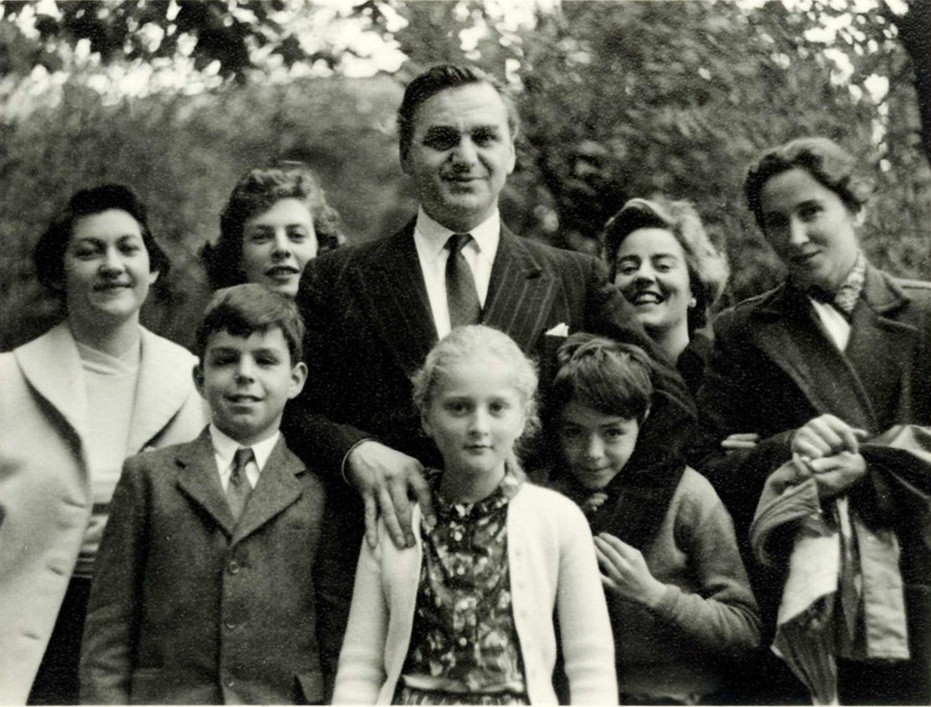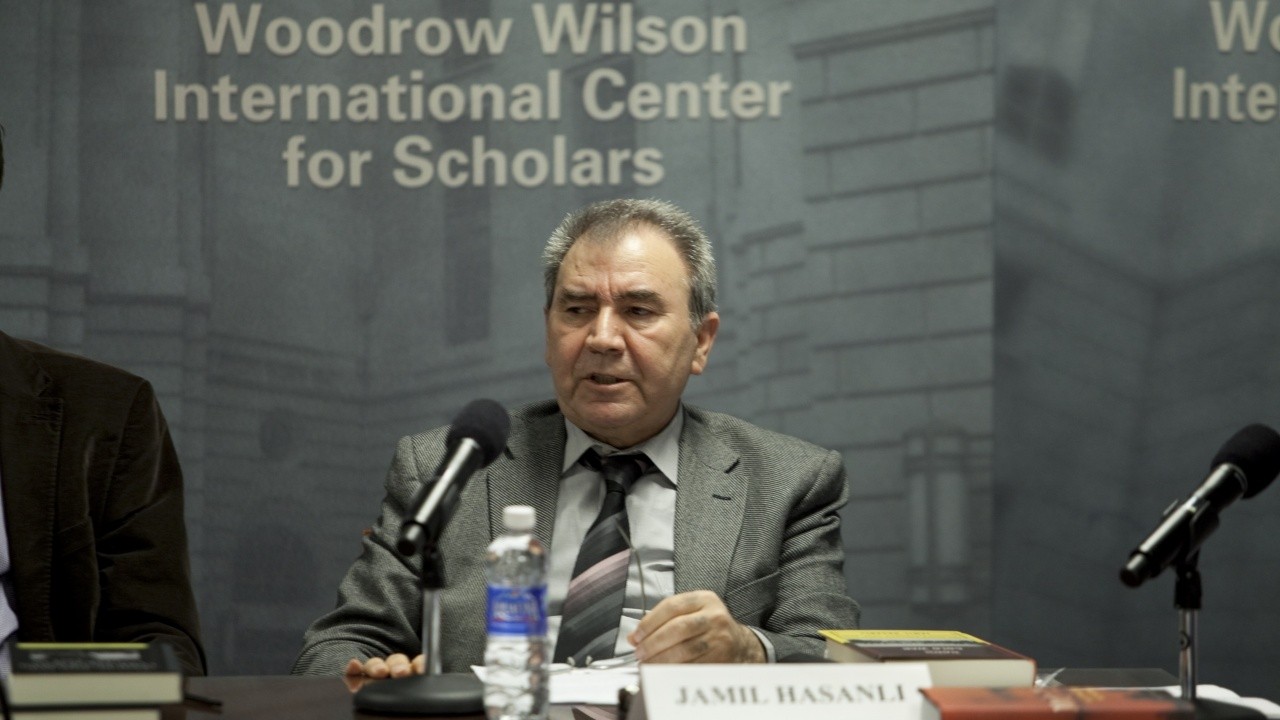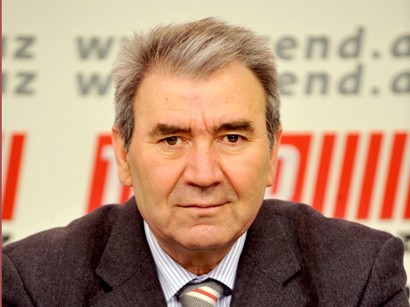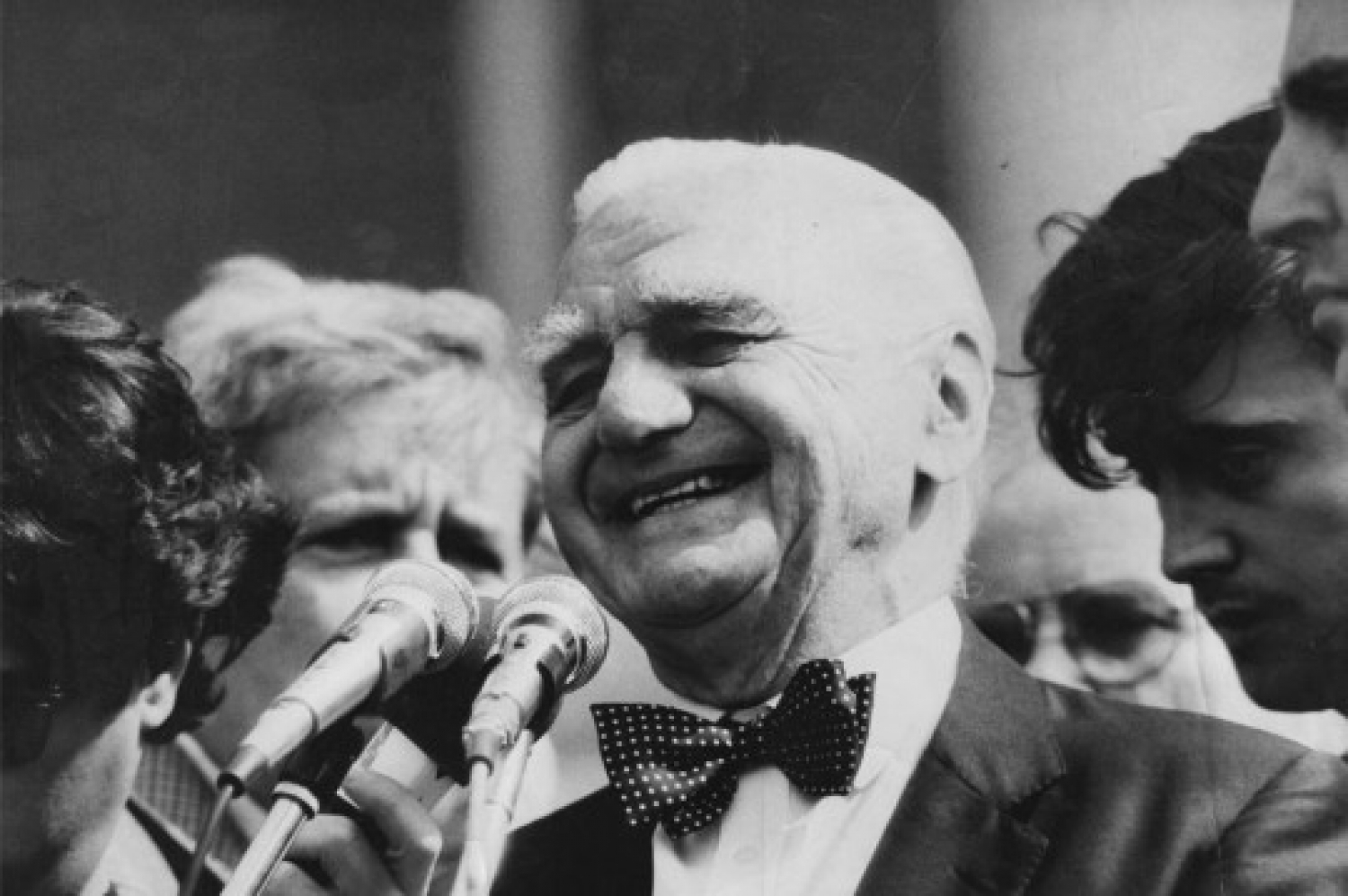
On the January 17th 2015 we commemorate 15 years since we lost Ion Ratiu – ‘The best President Romania never had’ – as he is often remembered, a patriot who fought all his life for a democratic and socially just Romanian society. At The Romanian Cultural Centre in London (RCC) we feel that the best way to pay our respects to him is to celebrate his life’s work rather than to simply commemorate his death. We say this especially since we believe that his legacy and his spirit still live and flourish through the activities of the Ratiu Foundation and the numerous projects it has been supporting since its establishment in 1979. As a confirmation, this year, his youngest son, Nicolae Ratiu was awarded MBE (Member of British Empire) for his devoted work to empower disadvantaged groups in Romania. This distinction recognises the achievements and service of extraordinary people across the United Kingdom.
Another great example of Ion Ratiu’s legacy is the work carried by Relief Fund for Romania, which is just one of the few organizations set up by him in order to help Romanians. After the fall of communism in Eastern Europe more than 25 years ago it became one of the largest and most active UK-based charities helping Romania.
Today, Ion Ratiu’s legacy is inspiring the work of The Raţiu Democracy Centre, CRD – a non-governmental, not-for-profit organization based in Transylvania, Romania that was founded in 2004 by his eldest son, Indrei Ratiu. The Centre is particularly active in the fields of democratization and civil society building through programs and projects that aim to improve the quality of democratic life and civil participation in the public sphere. The Raţiu Center for Democracy is also involved in several international projects including the prestigious annual Ion Raţiu Democracy Award & Workshop in association with the Woodrow Wilson Center for International Scholars in Washington, D.C.
Ratiu Family Foundation activity is not only focused on political agendas. Along the years they created strong partnerships with cultural organisations such as Pro Patrimonio, an organisation devoted to saving, preserving and restoring the architectural and cultural heritage of Romania as well as Fundatia ADEPT that aims at protecting the nature-rich, farmed landscapes of Transylvania, while also supporting the local traditional farming communities.
We are presenting below the eulogy Nicolae Ratiu read out at his father’s funeral 15 years ago which we publish here for the first time. A touching speech revealing Ion Ratiu as a kind hearted man, determined to fight throughout his life to achieve his ambitions – to make Romania a better country.
Another great example of Ion Ratiu’s legacy is the work carried by Relief Fund for Romania, which is just one of the few organizations set up by him in order to help Romanians. After the fall of communism in Eastern Europe more than 25 years ago it became one of the largest and most active UK-based charities helping Romania.
Today, Ion Ratiu’s legacy is inspiring the work of The Raţiu Democracy Centre, CRD – a non-governmental, not-for-profit organization based in Transylvania, Romania that was founded in 2004 by his eldest son, Indrei Ratiu. The Centre is particularly active in the fields of democratization and civil society building through programs and projects that aim to improve the quality of democratic life and civil participation in the public sphere. The Raţiu Center for Democracy is also involved in several international projects including the prestigious annual Ion Raţiu Democracy Award & Workshop in association with the Woodrow Wilson Center for International Scholars in Washington, D.C.
Ratiu Family Foundation activity is not only focused on political agendas. Along the years they created strong partnerships with cultural organisations such as Pro Patrimonio, an organisation devoted to saving, preserving and restoring the architectural and cultural heritage of Romania as well as Fundatia ADEPT that aims at protecting the nature-rich, farmed landscapes of Transylvania, while also supporting the local traditional farming communities.
We are presenting below the eulogy Nicolae Ratiu read out at his father’s funeral 15 years ago which we publish here for the first time. A touching speech revealing Ion Ratiu as a kind hearted man, determined to fight throughout his life to achieve his ambitions – to make Romania a better country.
Eulogy
Turda, Romania, 23.01.2000
Turda, Romania, 23.01.2000
There is a saying which I cannot get out of my head when I think of my father, Ion Ratiu’s, political career in Romania. It is this one: ‘God protect me from my friends, my enemies I can look after myself.’ Admired and respected by those enemies, sadly he was feared by those friends. It was for one simple reason – he could not, and would not, be controlled. There was jealousy of that independence. That jealousy blinded those friends. I speak out about this now, because during his life he never would.
I was proud of him when in 1991 he threw the miners from Chamber of Deputies telling them to go back to the voting booths. At that one moment I believed he saved democracy for Romania. The people recognised it – his friends resented it. My heart bled for him in 1996 when after a life of fighting for democracy his friends refused him every single ministerial post, giving many of them instead to people who had spent their lives supporting the opposite: communism. ‘Is there any justice in Romania?’ I wondered. ‘They will learn’, he said. His rules were not the same as theirs.
Our relationship was happily always full of jokes. ‘How do you make a small fortune in Romania?’ He asked me once. ‘No idea’ I answered. ‘Start with a large one.’ This applied in full to Mr Ratiu, but he did not mind – he was doing what he wanted – an independent spirit with such a love of his country that nothing would dishearten him. People say that politicians are required to have their feet in the political mire. Many of you will say: ‘But he was a politician too.’ He was, but one with a human face. As a son I thought of him as a real statesman. What you saw was what you got.
I said to him several times in moments of deep disappointment – and there were many. ‘Don’t complain. If you are in politics and want to win, you will have to play using the same rules as the others.’ He refused. Their rules were not his rules.
In 1992 when the vote was held to nominate the CDR candidate for the presidential election, supporters told him the nomination could be bought. His own party, instructed by Coposu, voted against him. At the final counting he lost by a difference of one single vote. It was not a vote he had even considered to buy, despite it being what he wanted so much. Later, in that election, coming from nowhere, a nobody won 35 percent of the vote. I believe my father would have won that election. Many urged him frequently to challenge Coposu. He never did. To split the party of his ancestors was anathema.
It cannot be said that Mr Ratiu did not firmly believe that he would make the best President of the country. From the moment in January 1990 when he was chosen as PNT candidate until the day he died, he was convinced of it. His ego was enormous – this was his strength as well as his weakness. Sometimes difficult to live and work with but nevertheless inspirational. He was a man whom people loved but also a man whom people could hate. His character demanded a reaction.
Despite his calm and controlled manner he was a man with iron determination. Even in the 1950’s, 60’s and 70’s when the rest of us had no belief that communism would ever fall, he never gave up. ‘If the Romanian people can see that in the West there is still a tiny candle burning for their freedom, it will keep their hopes alive as well.’ He said. At times it seemed he was the only one not prepared to give up the fight. As a family we used to call his quest for Romanian freedom the carrot on the stick that kept the donkey going forward.
Ten years ago next week his dream came true and he returned to his beloved country, here to Turda. Ten years ago we went together to the family house, to the family church, to the family cemetery. We do the same now. It is difficult but we should be joyful now, as then, that he experienced such a pleasure. It was the bonus that made his lifelong fight worthwhile. How many men claim that life begins at 72? He did.
There was not enough time in his life to do all the things he wanted. His energy was endless. He always said that when it was time for him to go, he wanted to go fast. He went faster than even he expected, with the great regret that Romania had not developed into the country he dreamed of. His other huge regret was that the party he loved, the party of his ancestors, still had not delivered what he hoped it would, but then he was never given a real chance to contribute. Even that did not make him bitter – he had few illusions about his fellow human beings. I remember how one day I found my father desperately upset because he had received a letter from someone attacking him really harshly. He made a comment which I have never forgotten: ‘Why does he hate me so much? I never helped him.’
It saddened him deeply to see the economic condition of most Romanian people. Privately without publicity he helped many, many individuals. The Family Foundation he started continues to do so. If there is immortality on earth it will, I think, manifest itself in the public example he gave of serving his country, in his books, his diaries, his newspaper and in the past and future works of the Ratiu Foundation he created. In the future he will look down, or up, as we used to joke, and pull our ears if we do not fulfil his wishes and dreams.
The last little joke he made to me only hours before he died as he regained consciousness was this: suddenly. ‘Do you know an extraordinary thing’, he said ‘you learn something new every day.’ ‘What’s that?’ I asked, somewhat surprised. ‘I am learning how to die’, he said, and smiled.
To the very end life was for him an exciting and stimulating adventure. He had a good life and acknowledged it. He had a life of which I as a son was proud and I believe he too had a reason to be proud. Memories of him will fade but never die. He stood for something very special in people’s hearts. He was a very loveable man… a tolerant man… a man who touched the souls of the Romanian people for ever… a good Romanian man.
Nicolae Ratiu



.jpg)

